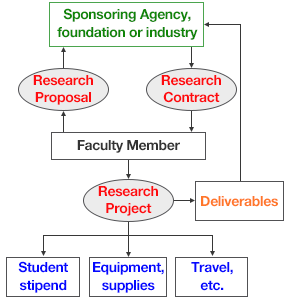Graduate Program Overview
The goal of the master program is to train professionals to perform research and solve problems in their field of interest. GC not only provides students with solid knowledge and techniques, but also develops their abilities to conduct research in various engineering fields. The program provides rigorous science and engineering education that emphasizes both breadth and depth. It strengthens students’ knowledge in math, science, and engineering, to provide a solid basis upon which research skills are built.
The goal of the Ph.D. degree is to cultivate world-class innovative leaders who can work in international universities and research institutes. A Ph.D. degree is given in recognition of a student’s outstanding knowledge and innovative capability in a specific field. GC encourages innovative research and emphasize influential projects and revolutionary discovery. It seeks cooperation with research projects in government and industry to achieve international impact. It also encourages international cooperation and exchange, through short-term study abroad programs or participation in international conferences.
Admission Process
The Joint Institute offers Master of Science (MS) and Doctor of Philosophy (PhD) degrees in Mechanical Engineering (ME) and Electrical and Computer Engineering (ECE) related areas. Qualified Bachelor and Master students are encouraged to apply for admission to the graduate program. The admission procedure details the steps required to gain admission to the Joint Institute.
Degree Requirements
Detailed degree requirements are developed for the Master of Science and Doctor of Philosophy degrees.

Figure 1. Typical research financing scheme
The success of these research projects depends to a large extent on the unique relationship between the faculty adviser and the graduate student. This relationship must be one of mutual respect and trust. The adviser must provide patient guidance and support for the student and must have reasonable expectations of his/her productivity. The tasks assigned to the student must be commensurate with his/her abilities, level of skills, and level of knowledge of the field. Graduate students must make every effort to complete the tasks assigned to them in a timely and professional manner.
Because an advanced degree is granted to the student for demonstrating his/her ability to carry out original research independently, progress towards this goal is measured by the successful completion of increasingly complex tasks in an increasingly independent manner.
The success of the graduate program hinges upon the quality of the graduate student/faculty adviser relationship. If a difference develops between the advisor and the graduate student, the head of the graduate committee will step in as a mediator to guarantee that remedial measures are taken in the best interest of the advisor, student, research project, and overall graduate program.
